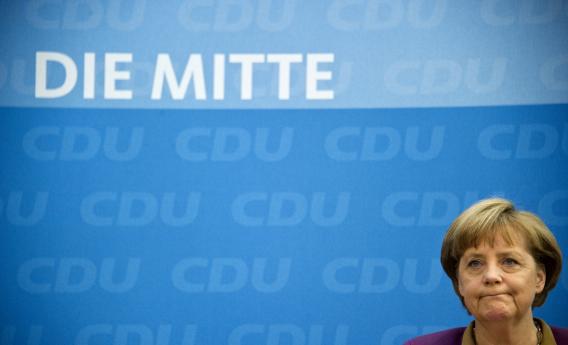Back in 1993, when another conservative German chancellor was making economic predictions based more on politics than economics, I wrote a piece that helped underscore fiscal fudging by the German finance ministry that was every bit as egregious as the Greek gaps that emerged a decade later.
Few remember now, but Germany under Helmut Kohl in 1993—just after absorbing the east and reunifying the country—manipulated its fiscal tabulations to hide a fiscal deficit equal to 8 percent of GDP. (The reported figure, which conveniently left out large costs associated with reunification, was just under 5 percent.) To be sure, the historic opportunity presented by reunification provided some justification for this—sometimes politicians lie for good reasons.
Nonetheless, it soon became clear that Germany would have to reform itself to retain its reputation as the west’s most productive industrial economy. Far from the boom Kohl predictedl, instead he left his successor, the Social Democrat Gerhard Schroeder, with difficult choices: a continued denial of the welfare state’s overstretch, or the long, deliberate task of reviving German productivity.
As we now know, in late 2003, Schroeder chose the former—with fantastic results. Germany’s current economic vitality has everything to do with correct economic policy: reforms to inefficient labor and regulatory markets in good times, along with selective tax cuts, all implemented during boom times.
Most importantly, these reforms were phased in over nearly a decade, avoiding the political backlash that the radical austerity fostered by the current German leadership has caused in Europe.
As this weekend’s vote in Greece and last week’s in France show, the only way to force the kind of austerity that Germany is foisting upon the rest of the eurozone is to be completely unaccountable to their voters.
But Merkel got her comeuppance this weekend. Indeed, in the annals of off-year electoral comeuppance, the defeat of German Chancellor Angela Merkel’s conservative coalition in state elections on Sunday may take the prize for just deserts.
In Germany’s most populous and economically significant region—the state of North Rhine Westphalia—the Christian Democrats led by Merkel lost comprehensively to parties on the left—the Social Democrats and Greens—in a vote being viewed as a referendum on her handling of the European debt crisis.
Now, it would be easy to read this as a German vote of solidarity with their austerity-plagued southern EU brethren, but that would be incorrect. If anything, German voters object to what they see as a relatively liberal approach by Merkel to bailing out less efficient, more generous economies in the so-called “periphery.” The “austerity” German registered frustration with was a much milder domestic variety—an unwillingness, for instance, by the local branch of Merkel’s party to approve a state budget that included stimulus spending.
Still, if this weakens her hold on national office it will be a step in the right direction. Europe, like Germany at the end of the 1990s, absolutely must get its spending under control. But it can’t be done in a Blitzkrieg. It takes a decade, and that’s a lesson Germans know better than most.
